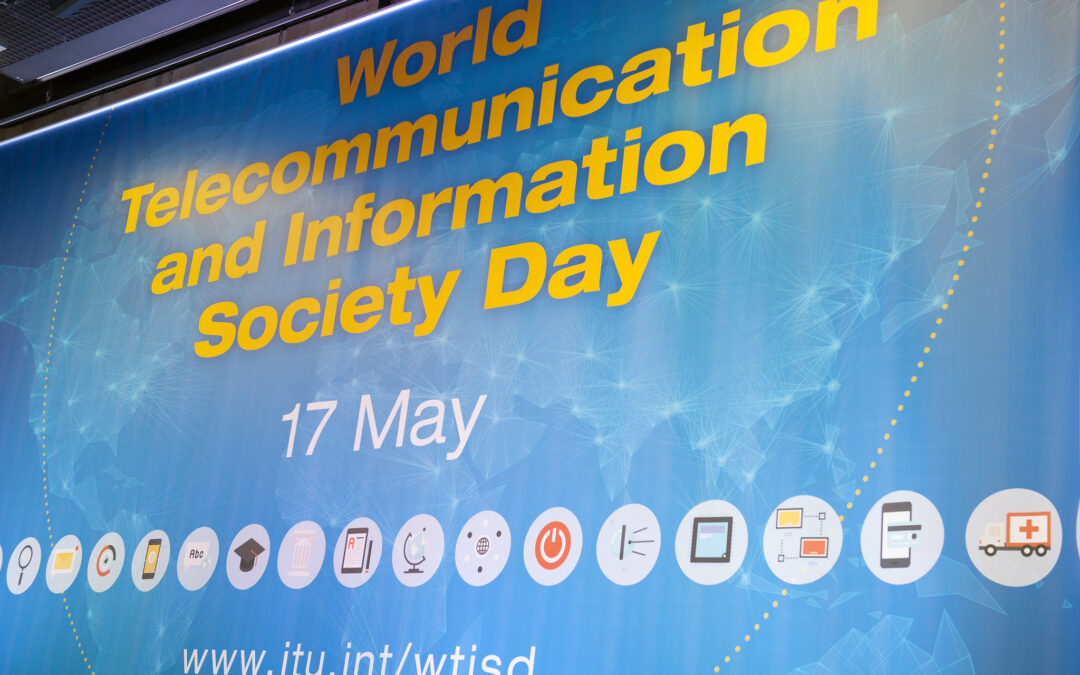World Telecommunication and Information Society Day (WTISD) is an annual celebration staged at various global locations each year. WTISD’s goal is to raise awareness about the crucial role of telecommunications and associated technologies in promoting global economic and social development. In this article, we share 10 facts about the event and the driving force behind it, the International Telecommunication Union (ITU), exploring their history and impact today.
1. WTISD celebrates the signing of the first International Telegraph Convention
Held on May 17 each year, WTISD marks the anniversary of the ratification of the International Telegraph Convention in 1865, and the subsequent creation of the ITU. Organized by the United Nations and held annually since 1969, the observance of World Telecommunications Day involves a variety of events and activities staged at various venues worldwide, including seminars, workshops, conferences and exhibitions.
2. The Convention established a framework for communications across Europe
The International Telegraph Convention harmonized regulations, tariffs, and technology across Europe for the first time, its reach spreading across most of the continent, as far as its borders with Asia and Africa. Despite the fact that several of the convention’s signatory states had been at war in the previous year, the telegraph treaty was unanimously embraced, creating a platform for the exchange of ideas regarding the telecommunications industry, and “providing a speedy and unbroken link for scattered members of the human race.”
3. The ITU is a specialized agency for the United Nations
It was created in 1865 to promote international connectivity and to oversee the establishment of communications networks. The ITU is responsible for allocating satellite orbits and global radio spectrum. The ITU is also responsible for ensuring that technologies and networks interconnect seamlessly, as well as striving to improve access to information and communication technologies for underserved communities around the world. In effect, every time you access the Internet, send an email, or make a call via a mobile phone, you are benefiting from the work of the ITU.
4. The ITU is committed to connecting the international community
The ITU’s overriding objective is to keep people all over the world connected, irrespective of their financial circumstances or their geographical location. Through its work, the ITU supports and protects everyone’s right to communicate.
5. WTISD unites industry experts, policymakers, tech enthusiasts and the public
Events staged at various locations worldwide on May 17 presented opportunities to discuss emerging trends in telecommunications and information society, as well as enabling delegates to discuss challenges and opportunities arising in the industry. WTISD reflects on recent telecommunication developments and trends. For each edition, the ITU selects a different theme, highlighting a particular area of the telecommunication and information technology industry to stimulate collaboration and communication among stakeholders.
6. The telecom industry has changed the world, stimulating economic growth
Facilitating long distance communication, the sector has created exciting opportunities in a range of unrelated industries, paving the way for innovations as diverse as online learning and telemedicine. Telecommunications not only connects family and friends on opposite sides of the world, but enables parties to complete transactions at a distance, transforming the way people do business.
7. The ITU launched the IMPACT cybersecurity alliance in 2011
IMPACT, or the International Multilateral Partnership Against Cyber Threats, is the first cybersecurity alliance backed by the United Nations. This specialized agency was created by the ITU, and serves as a key partner of the United Nations agency. A politically neutral global platform, IMPACT brings together governments from all over the world alongside academics, and telecommunications and technology specialists, enhancing the global community’s capabilities in terms of dealing with cyber threats, a growing threat to public and private organizations alike in the 20th century.
8. WTISD helps the industry to keep pace with changing consumer demands.
In order for telecommunications companies to remain relevant in 2023 and beyond, they need to evolve in line with changing consumer preferences and needs. Economic and political developments combined with regulatory changes and shifting market trends are all shaping the telecommunications and technology sector, affecting the business environment along with regulatory constraints, and crucial trends affecting supply and demand.
9. WTISD 2023 focused on developing countries in need of digital investment
The theme of the 2023 edition of WTISD was: “Empowering the Least Developed Countries Through Information & Communication Technologies.” In line with the UN Sustainable Development Goals, the ITU seeks to help the world’s least developed countries to drive sustainable growth for generations, progressing digital transformation in the least developed nations.
10. The ITU’s diverse family is continuing to grow
Comprising 193 Member States as well as 900 universities, companies, and regional and international organizations, the ITU is a unique platform for public and private partnerships. In joining the ITU, members become part of a global community of more than 20,000 professionals, gaining access to a rich and diverse network of experts, specialists and thought leaders across the information and communication technologies ecosystem.

